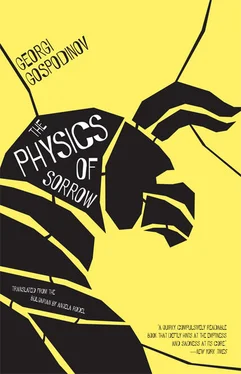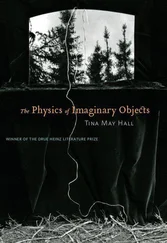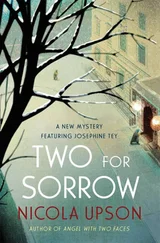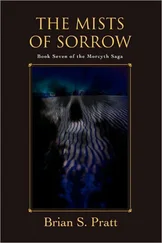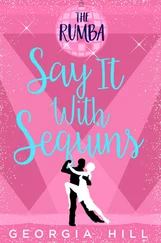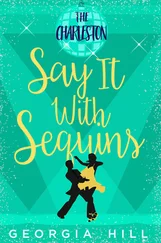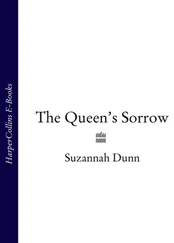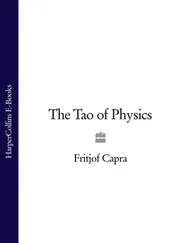Afterward, I had to pay for the window.
I’d better get out of here quick. I’d better be someone else. Someone else, somewhere else.
EMPTY SPACE
If you turn to the back pages of the European newspaper you’re reading, there, on the map showing the weather forecast, you’ll see an empty space — between Istanbul, Vienna and Budapest.
The saddest place in the world, as the Economist called it in 2010 (I clipped out the article), as if there is truly a geography of happiness.
I wrote about this for a newspaper. An innocent piece, which stirred up a backlash on the Internet, and I received threats — the first since I had started publishing. (No one wants to be told he doesn’t exist.) I didn’t take the hint. I wrote a few more pieces, more ironic than anything else, about the fact that 1968 never happened here. About how we don’t exist, how we’re so nonexistent that we have to do something really over-the-top to be noticed, like Georgi Markov being jabbed with a poisoned umbrella on a bridge in London. To get mixed up in hazy dealings with Turkish terrorists, an assassination attempt on the Pope that later, proof or no proof, will be called “the Bulgarian connection.” To steal Charlie Chaplin’s dead body, to hold his corpse hostage. The Internet forum was already abuzz with threats, the mildest of which was that I’d be trailing my guts out behind me like a beat-up dog. I still didn’t pay much attention, dismissing them as the work of anonymous nutcases with inferiority complexes. One night the telephone rang, the message was brief, but it was no longer just about me, they knew exactly what to do. That was the final straw, I decided to drop everything, take my daughter and leave.
Somewhere else, somewhere else.
ADVICE FROM THE NINETEENTH CENTURY
Your bile is stagnant, you see sorrow in everything, you are drenched in melancholy, my friend the doctor said.
Isn’t melancholy something from previous centuries? Isn’t there some vaccine against it yet, hasn’t medicine taken care of it yet? I ask.
There’s never been as much melancholy as there is today, the doctor said with a throaty laugh. They just don’t advertise it. It’s not marketable, melancholy doesn’t sell. Imagine an ad for a slow, melancholic Mercedes, S-class. But getting back to the point, I’ll recommend something to you that you’ll say is straight out of the nineteenth century: travel, stir up your blood, give your eyes new sights, go south.
That sounds pretty Chekhovian, doctor.
Well, Chekhov knew what to do, after all he wasn’t just some ignorant writer, but a doctor, the doctor laughed.
He’s right, of course. I had exhausted my personal reserves of meaning. The doctor read a lot, I’m sure that he secretly writes stories similar to those of his mentor, Chekhov. What I really love him for is the fact that he has never taken advantage of the opportunity to foist them on me.
I’d better travel, I’d better travel.
AS A BEGINNING AND END: BERLIN
Eighty percent of Bulgarians had not
left their native country before 1989.
.
Being abroad is like being in space, a woman I know said as I was preparing to leave, you don’t age as quickly there. When you get back, we’ll already be little old ladies, while you’ll still be forty-something. How awful, I thought to myself then, to still be young, when the women you thought were hot have grown old.
What was in the beginning? Not the chicken, not the egg, nor the darkness upon the face of the deep. Now, in the middle of my empty and unorganized room, I look for something to write in. There’s that damn notebook. Seen from the outside, the moment is solemn, a new life in a new and unknown city. Which words are fitting, the first words for such a moment? I hurry so as not to forget them.
Bread, apples, toothbrush, honey, mouse, corkscrew.
In the beginning was the list.
The first night under the oppressively high ceilings of a Berlin apartment. I lay there, remembering all the ceilings and all the rooms of my life.
The St. Matthias Cemetery in Schöneberg, near the Turkish market. On the one side the vendors’ shouts — kilo-euro, kilo-euro. Buyurunuz ! Here you are. On the other side, a few yards away, the absolute silence of the walkways and the dead under the grass.
My father, whom I took with me for a few months, never managed to get used to the size of the apartment and asked to sleep in the kitchen, the smallest room. He never managed to get used to the size of Berlin, either. The only place he wanted me to take him was that Turkish market and the cemetery next to it.
There he could always exchange a few “Bulgarian” words like arkadaş (friend), çok selam (many greetings), aferim (bravo), mashallah (bravo), evallah (bravo again). and to buy himself some “Bulgarian” cheese and a roll. Afterward, he would sit on a bench in the cemetery across the way, where the dead didn’t speak German anymore, so he could chat with them a bit and throw crumbs to the pigeons. I would leave him there in the morning and go pick him up in the evening.
I would bike around the afternoons of Grunewald. Huge, heavy houses. Another time, another Germany. A monolith that has weathered catastrophes.
You don’t come to Berlin for fun. In February 1918, the Bulgarian poet Geo Milev came here to patch up his shattered head and stayed a whole year. Auden arrived in Berlin in 1928, driven here by despair. Eliot came here to lick his wounds, after his first book had been rejected. Russian emigrants, fleeing the revolution, settled here in Charlottenburg. When the elderly writer Angelika Schrobsdorff was asked why she left her cozy home in Israel at such an advanced age to come live in Berlin, her withering answer was: “Who said I was coming here to live?” And to be maximally clear, she added: “Berlin is a more comfortable place to die.”
One day, while we were poking around the Olympic Stadium, two German officers in Nazi uniforms suddenly jumped out in front of us. We were startled, then we spotted the camera behind them. They were shooting a film. One of the assistant directors signaled to us to quietly slip away, but Aya started bawling at the top of her lungs and the stadium resounded with her screams. Cut! Cinema’s whole machinery fell silent. For a few minutes, World War II was subject to a compulsory lull.
And since things happen simultaneously, I imagined how precisely in those two minutes during that battle in Hungary, a woman took advantage of the inexplicable lull in military operations to go out onto the street and drag a wounded soldier into her home.
What remains in the end — a wintry Berlin day in a high-ceilinged room, almost empty, on the edge of Charlottenburg, a sense of emptiness, monumentalism and minimalism. Here, where Arvo Pärt lived for a year, I’m now listening to his “Für Alina,” every note breaks away, circles around the empty room, you can hold it in your hand before it disappears. Aya will take her first steps in this room, here she’ll say her first word: Nein .
What else. The sky above Berlin, the saddest bakery in the world at the very end of Kurfürstendamm with wedding cakes that nobody buys, Savignyplatz’s autumn with its leaves falling endlessly over the pizzeria, the lakes of Grunewald, the glass dome of the Reichstag set ablaze by the sunset, the early dusk of November, the widows of Wilmersdorf who survived the air raids, exhausted from the peacetime they must die in, the late autumnal crocuses along Halensee, the Chinese women selling tulips in the subway, Christmas Eve, when we leave the table uncleared following some custom, so that our dead can come and eat their fill. Anxiousness over whether they’ll find the way, and consolation in the fact that even if the place is different, the heavens are not.
Читать дальше
